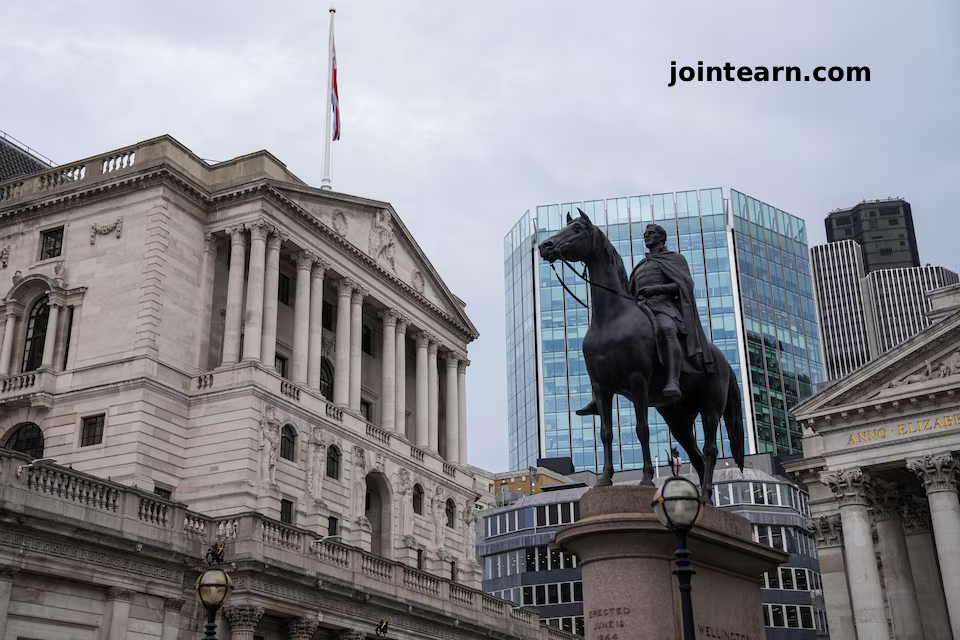
London: The Bank of England (BoE) decided to keep interest rates unchanged at 4.0% on Thursday in a razor-thin 5-4 vote, signaling cautious optimism as signs emerge that inflation may be slowing. The decision briefly pushed the pound slightly higher against the dollar, while UK government bond prices rose.
Governor Andrew Bailey cast the deciding vote to hold rates, with four other members preferring a rate cut. The BoE’s approach reflects a careful balance between controlling inflation and supporting economic growth ahead of the upcoming Autumn Budget.
Market Reaction
Following the announcement:
- The pound rose 0.2% against the U.S. dollar, trading at $1.30799.
- It weakened slightly against the euro, reaching 88.1 pence per euro.
- Two-year gilt yields fell to 3.78%, down 3 basis points.
- The FTSE-100 index declined 0.2%, having pared some losses later in the session.
Analysts described the decision as dovish, highlighting that the BoE is signaling readiness to cut rates in the near term if disinflation continues.
Analysts’ Views
- Kirstine Kundby-Nielsen, Danske Bank: “The bar for a December cut is low. With fiscal tightening imminent, the next cut is likely after the Budget. Sterling may weaken further as the market adopts a dovish stance.”
- Kenneth Broux, Société Générale: “There’s a dovish tone in the statement, and while December is not guaranteed, it’s certainly in play. The split vote adds a cautious feel to policy.”
- Neil Wilson, Saxo Markets: “Bailey’s swing vote highlights the narrow margin. Waiting until after the Budget minimizes risk, but some may question the delay.”
- Michael Brown, Pepperstone: “The explicit easing bias in the statement indicates the BoE believes inflation has peaked and is ready to reduce rates further.”
- Zara Nokes, JPMorgan Asset Management: “Headline inflation at 3.8% remains high. While the labour market cools, consumer data shows resilience. The Bank must remain cautious until inflation falls closer to target.”
- George Brown, Schroders: “Holding rates now allows the BoE to assess post-Budget data before easing. Sticky wages and subdued productivity require caution.”
- Mathieu Savary, BCA Research: “A dovish hold reflects a softening labour market and slowing wage inflation. A December cut remains our base case.”
Inflation, Labour Market, and Policy Outlook
The BoE emphasized that inflation, currently nearly double its 2% target, is showing signs of moderation. Labour market data indicates slowing wage growth, and other economic indicators, such as retail sales and consumer confidence, suggest a resilient UK economy.
The Bank signaled that further rate cuts would depend on:
- Continued disinflation
- Labour market trends
- Fiscal measures announced in the Autumn Budget, which could include tax changes or energy bill relief
Economists suggest that upcoming government fiscal tightening of £40 billion ($26.8 billion) could provide room for multiple rate cuts next year.
Looking Ahead
The BoE’s decision underscores a deliberate and cautious monetary policy stance. With markets anticipating potential easing in December, investors are closely monitoring inflation, wage trends, and fiscal policy developments.
As analysts highlight, the next move in interest rates is contingent on both economic data and the government’s Budget measures, making December’s meeting a key point for the Bank’s monetary strategy.


Leave a Reply